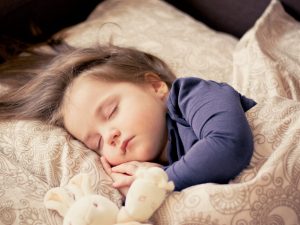 We all know the child who can’t sit still, is impulsive and easily distracted. And we repeatedly hear that the numbers of children diagnosed with ADHD continues to rise. As we think about why this is so, have we considered the role of sleep? Could it be that sleep problems look a lot like ADHD?
We all know the child who can’t sit still, is impulsive and easily distracted. And we repeatedly hear that the numbers of children diagnosed with ADHD continues to rise. As we think about why this is so, have we considered the role of sleep? Could it be that sleep problems look a lot like ADHD?
Given how stressed, restless, and over stimulated so many kids are, the lack of quality sleep could be a focus to improve behavior. Maybe that child bouncing off the wall needs a good night sleep! Maybe he or she has obstructive breathing or insomnia. I am not saying that ADHD children are misdiagnosed sleep disorders, but this could be the case for some children.
Consider the symptoms of sleep deprivation: Trouble with focus, mood swings, and hyperactivity–all similar to ADHD. Could the symptoms of ADHD be connected to disruptions in normal circadian rhythm (body clock) function which causes chronic sleep problems? In other words, that child who isn’t getting a good night’s rest could have symptoms that look a lot like ADHD in the morning.
Some researchers are studying this link between sleep and ADHD. The National Sleep Foundation states that ADHD children have a variety of sleep problems. A systematic review of sleep and alertness noted ADHD children to have higher daytime sleepiness, more movements in sleep, and higher apnea-hypopnea indexes compared with controls. Apparently, sleeplessness and ADHD are more related than previously thought. In fact, if 75% of adults and children have sleep problems, we should be asking questions about sleep.
Typically, there are three types of sleep problems: Insomnia, disordered breathing and insufficient sleep. A professor of family and social medicine at Albert Einstein College of Medicine in New York, Karen Bonuck, looked at the differences between kids who snored, were mouth breathers or had apnea. She found that those children with sleep problems were 40 percent to 100 percent more likely than those without the sleep problems to have behaviors resembling ADHD by the age 7. Her study included around 11,000 children. Based on her data, there is no doubt that sleep problems affect child behavior.
Now, consider the number of preschoolers who go to bed very late (10, 11 o’clock at night) and have to be up by 6 or 7a.m. They are not getting the 10-13 recommended hours of sleep for toddlers. And we know that children who don’t get enough and good quality sleep will have their memory, learning, attention and behavior affected.
So perhaps we can help our children by screening their sleep problems and implementing better sleep habits. A few suggestions are to establish an early bed time, power down activities and devices in order to quiet the mind and body, darken the room, keep children active during daytime with exercise, and provide good nutrition. Just a few lifestyle changes could make the difference for some children. And if you notice sleep disturbances, have them evaluated by your physician.


